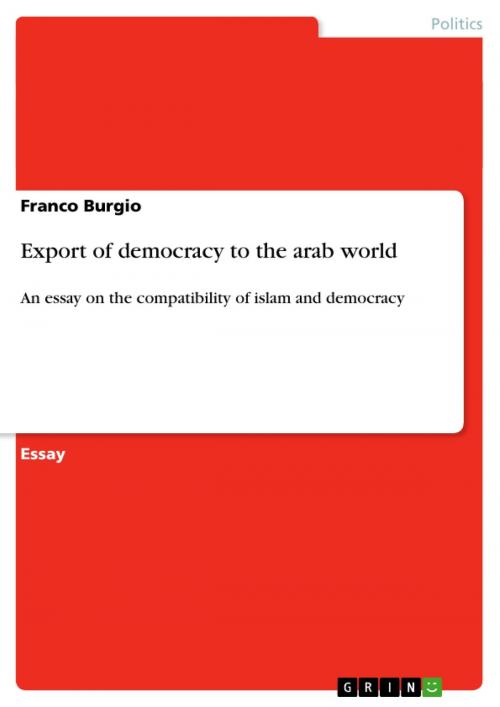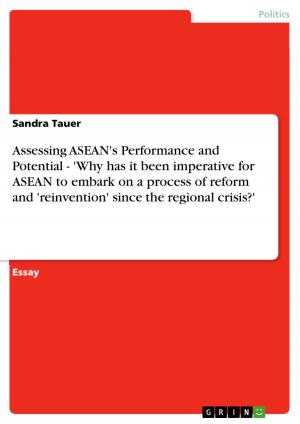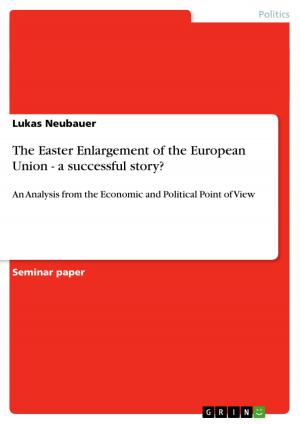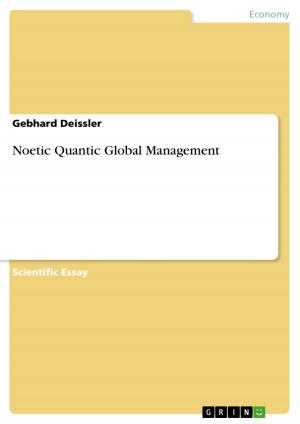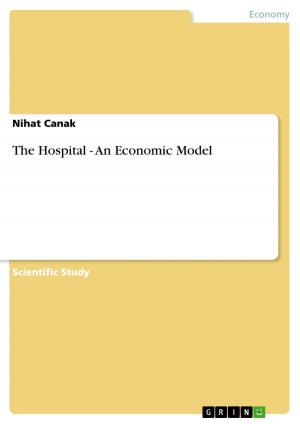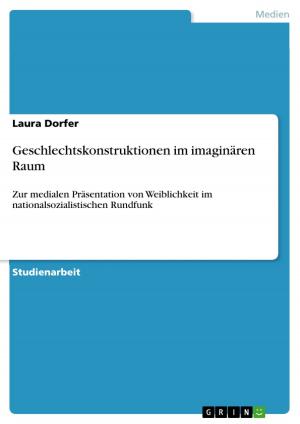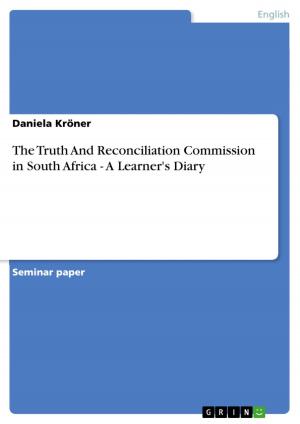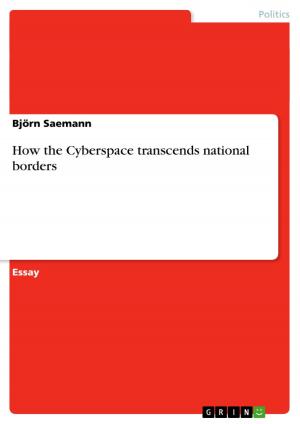Export of democracy to the arab world
An essay on the compatibility of islam and democracy
Nonfiction, Social & Cultural Studies, Political Science| Author: | Franco Burgio | ISBN: | 9783640148400 |
| Publisher: | GRIN Publishing | Publication: | August 29, 2008 |
| Imprint: | GRIN Publishing | Language: | English |
| Author: | Franco Burgio |
| ISBN: | 9783640148400 |
| Publisher: | GRIN Publishing |
| Publication: | August 29, 2008 |
| Imprint: | GRIN Publishing |
| Language: | English |
Essay from the year 2007 in the subject Politics - International Politics - Topic: Miscellaneous, grade: 18/20, Vrije University Brussel (Université Libre de Bruxelles), course: Seminar, 50 entries in the bibliography, language: English, abstract: Western Initiatives in the last years and especially in the aftermath of 11 September 2001 multiplied and intensified (e.g. the U.S. proposal of a Greater Middle East Initiative, Barcelona Process by the EU) in order to bring democracy to a region which by any definition has the Arab World at its core and which in comparison to Eastern Europe and Latin America seems reluctant to follow the common trend of establishing representative democracies as form of government. Besides the 'exportation' efforts also internal Arab political discourse generally endows democracies with a virtually talismanic quality capable of solving all outstanding problems, as Al-Azmeh rightly points out. The Arab Word is stretching from Morocco in the west to Oman in the east including a variety of different state structures (small city states like Kuwait , large states like Libya, extremely rich and extremely poor regions)3 and is populated by heterogeneous ethnic groups (large Berber minorities in the Mahgreb and Kurdish, Turkic and Armenian minorities in the Mashreq). However big the differences may be two common nominators can doubtless be identified: Islam and a democracy deficit . The questions arising are obvious. Is the message of the prophet responsible that no stabile democratic government is in sight in the Arab World ? Is the deficit in democratic ruling indeed a cultural and religious problem ? Is the Koran compatible with the concepts of democracy ?
Essay from the year 2007 in the subject Politics - International Politics - Topic: Miscellaneous, grade: 18/20, Vrije University Brussel (Université Libre de Bruxelles), course: Seminar, 50 entries in the bibliography, language: English, abstract: Western Initiatives in the last years and especially in the aftermath of 11 September 2001 multiplied and intensified (e.g. the U.S. proposal of a Greater Middle East Initiative, Barcelona Process by the EU) in order to bring democracy to a region which by any definition has the Arab World at its core and which in comparison to Eastern Europe and Latin America seems reluctant to follow the common trend of establishing representative democracies as form of government. Besides the 'exportation' efforts also internal Arab political discourse generally endows democracies with a virtually talismanic quality capable of solving all outstanding problems, as Al-Azmeh rightly points out. The Arab Word is stretching from Morocco in the west to Oman in the east including a variety of different state structures (small city states like Kuwait , large states like Libya, extremely rich and extremely poor regions)3 and is populated by heterogeneous ethnic groups (large Berber minorities in the Mahgreb and Kurdish, Turkic and Armenian minorities in the Mashreq). However big the differences may be two common nominators can doubtless be identified: Islam and a democracy deficit . The questions arising are obvious. Is the message of the prophet responsible that no stabile democratic government is in sight in the Arab World ? Is the deficit in democratic ruling indeed a cultural and religious problem ? Is the Koran compatible with the concepts of democracy ?
